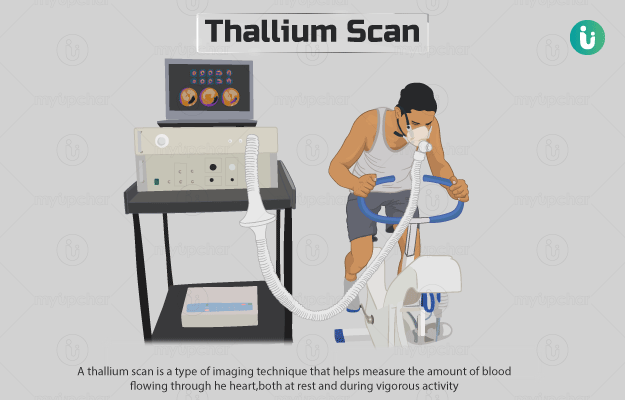What is a Thallium Scan?
A thallium scan is a type of imaging technique that helps measure the amount of blood flowing through the heart, both at rest and during vigorous activity. It is mainly done to assess the functioning of the heart after a heart attack and to find the cause of unexplained angina (chest pain).
In this test, a radioactive tracer, thallium chloride is injected into the bloodstream. This tracer has an affinity for certain body parts such as heart, brain, muscles, parathyroid glands and thyroid. As it starts collecting in these organs, thallium chloride releases radioactive energies, which are then picked up by a specific camera to reveal any pathological changes in these organs.
Two sets of pictures are taken during this test. One set of pictures is taken at rest and the other is taken during vigorous activity, after an exercise or after giving a medicine. Both the sets are compared to provide interpretation.
Thallium scan is also known as myocardial perfusion scintigraphy, sestamibi stress test, MIBI stress test, dobutamine stress test, Persantine stress test, thallium stress test, adenosine stress test, regadenoson stress test, stress test-nuclear, coronary artery disease-nuclear stress, angina-nuclear stress and chest pain-nuclear stress.
























